
Website Hosting Magento: Security Breach Impact & Best Practices
Want to secure your Magento store? Website hosting for Magento ensures this through customer data protection and financial stability. This article explores key Magento 2 security practices, covering risks and providing strategies.
Key Takeaways
-
Discover how Magento hosting protects customer data and ensures business continuity.
-
Discover the consequences of security breaches, including financial loss and reputational damage.
-
Understand how hosting ensures store security, emphasizing SSL encryption and DDoS protection.
-
Explore Magento's common security threats and the platform's built-in measures to counter them.
-
Get insights into best practices for enhancing your Magento site's security.
Importance of Security for Magento eCommerce Sites
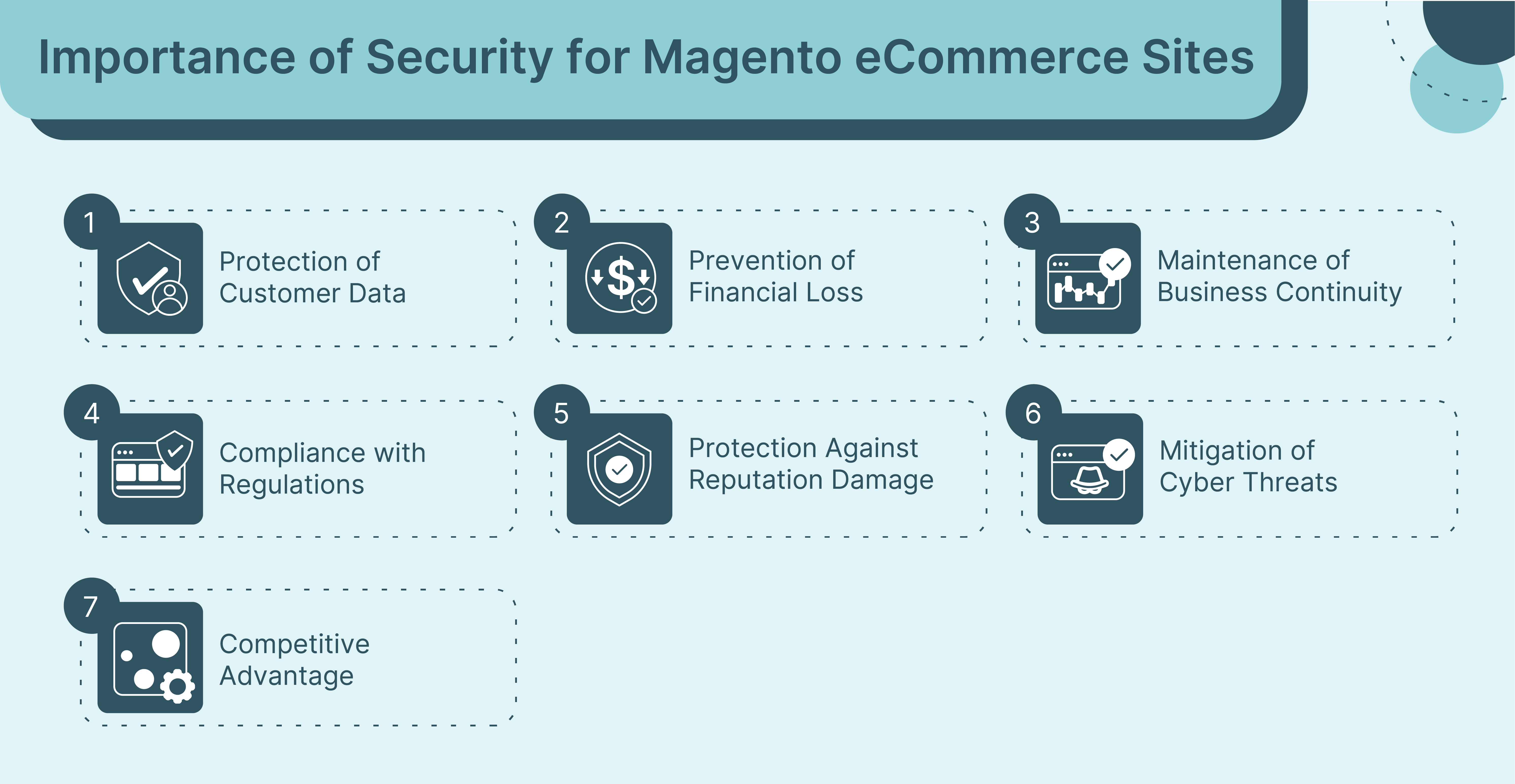
1. Protection of Customer Data
Safeguarding identifiable information (PII) is imperative. This includes credit card details, addresses, and contact information. Maintaining customer trust depends on it. A breach of customer data compromises individual privacy. It also tarnishes your brand's reputation. This can lead to loss of customers and legal repercussions.
2. Prevention of Financial Loss
eCommerce sites are lucrative targets for cybercriminals. They aim to exploit vulnerabilities for financial gain. Breaches can result in the theft of financial data. This can lead to significant financial losses. These losses include fines, legal fees, and compensation to affected customers.
3. Maintenance of Business Continuity
Downtime from security incidents can disrupt business operations. This results in lost revenue. It also damages brand reputation. Ensuring robust security measures minimizes the risk of website downtime. This maintains uninterrupted service to customers.
4. Compliance with Regulations
Adhering to industry regulations and standards is mandatory for eCommerce businesses. This includes standards such as PCI DSS (Payment Card Industry Data Security Standard). These are essential for handling sensitive customer data.
Failure to follow regulations exposes the business to legal penalties. It also signifies a lack of commitment to customer privacy and security.
5. Protection Against Reputation Damage
A security breach can have long-lasting repercussions. It affects your brand's reputation. This impacts customer loyalty and trust. Implementing security measures shows you care about protecting customer interests. It also strengthens your brand image.
6. Mitigation of Cyber Threats
The nature of cyber threats is evolving. This requires constant vigilance. Proactive measures are necessary to stay ahead of potential risks. Implementing robust security protocols helps mitigate the impact of cyber threats. This includes regular security audits, software patches, and intrusion detection systems.
7. Competitive Advantage
Prioritizing security can serve as a competitive differentiator. It distinguishes your eCommerce store as a trusted and reliable option among competitors. Customers are discerning about security practices. Investing in robust security measures can attract and keep a loyal customer base.
Impact of Security Breaches on eCommerce
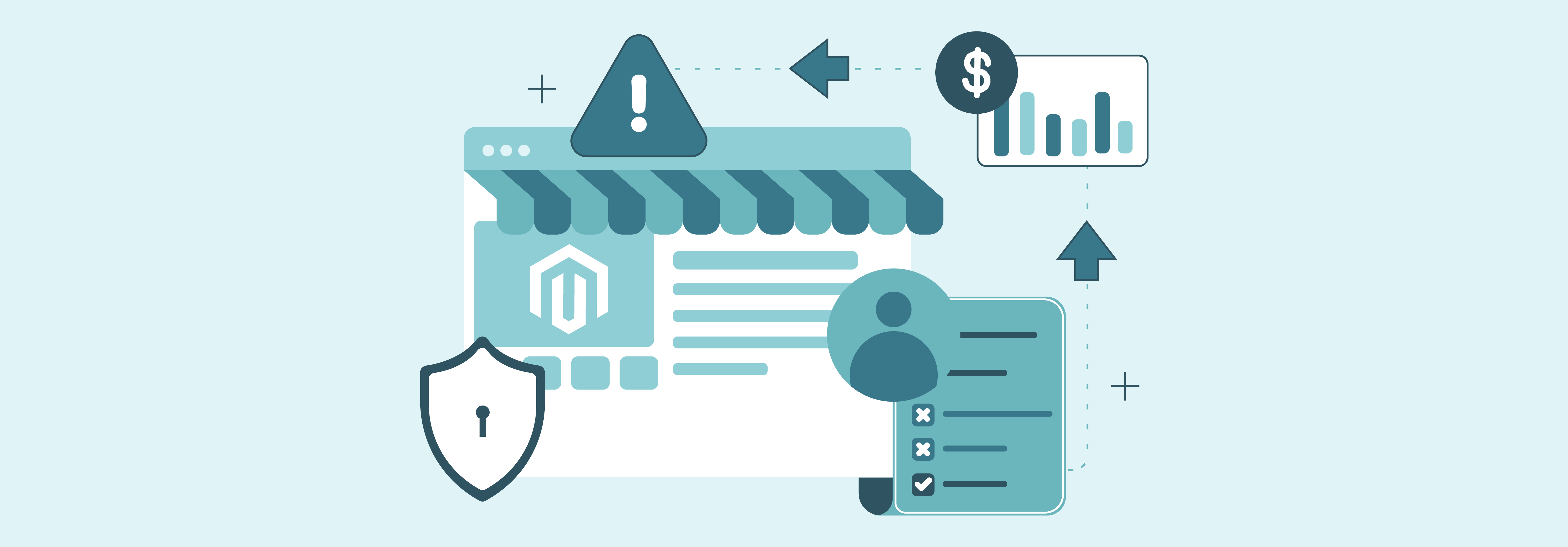
1. Financial Losses
Security breaches often result in direct financial losses. This happens through theft of funds or fraudulent transactions. Additionally, businesses may incur expenses. These include costs for investigating the breach. They also cover remediation efforts and potential legal fees.
2. Damage to Reputation
Security breaches erode trust in the affected eCommerce store, leading to reputational damage.
Negative publicity and media coverage can tarnish the brand's image. This may deter potential customers from transacting with the business.
3. Loss of Customer Trust
Security breaches undermine customer confidence. They doubt the store's ability to protect their sensitive information. Customers may stop making future purchases. They fear further security compromises. They also hesitate to share personal data.
4. Legal and Regulatory Consequences
eCommerce businesses may face legal liabilities from security breaches. This includes fines, penalties, and litigation costs. Not complying with regulations like GDPR or PCI DSS has severe consequences. It can also damage the business's reputation.
5. Operational Disruption
Security breaches can disrupt normal business operations. This leads to downtime and loss of productivity. Remediation efforts may need significant time. This includes restoring compromised systems. It also involves conducting forensic investigations.
6. Long-Term Business Impact
The long-term consequences of security breaches go beyond immediate financial losses. They can also include reputational damage. Businesses may struggle to regain customer trust. This can lead to decreased sales and diminished market share. It may also affect growth prospects.
7. Customer Support and Remediation Costs
After a security breach, businesses must invest in customer support. They need to address concerns, assist, and restore confidence. Remediation costs can strain financial resources. This includes implementing extra security measures and enhancing infrastructure.
Role of Hosting in Securing an Online Store
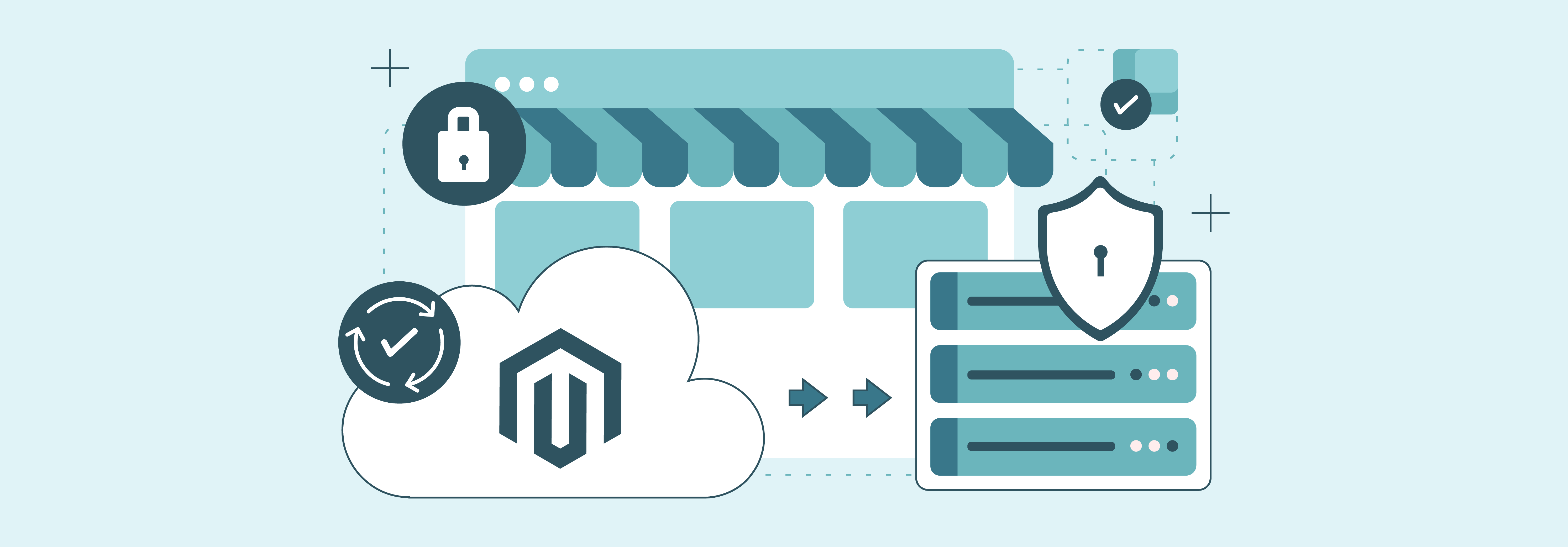
1. Server Security
Hosting providers offer various security measures at the server level. These include firewalls and intrusion detection systems. They also provide regular security updates. Secure server configurations help protect against unauthorized access and potential vulnerabilities.
2. SSL Encryption
Hosting services often include SSL (Secure Sockets Layer) certificates. These certificates enable encrypted communication between the server and the user's browser. SSL encryption keeps sensitive data secure. This includes payment information and login credentials during transmission.
3. Backup and Disaster Recovery
Reliable hosting providers offer backup solutions. They also provide disaster recovery plans. This safeguards against data loss and mitigates the impact of unexpected incidents. Performing regular backups ensures the restoration of data in case of security breaches.
4. DDoS Protection
Distributed Denial of Service (DDoS) attacks can disrupt website availability and compromise security. Hosting providers use DDoS protection mechanisms. They detect and mitigate malicious traffic. This ensures uninterrupted access to your online store.
5. Scalability and Performance
Hosting solutions offer scalability and robust performance. They secure your online store by handling traffic spikes. This prevents downtime. A scalable infrastructure reduces the risk of performance-related vulnerabilities. It ensures a seamless shopping experience for customers.
6. Support and Maintenance
Hosting providers offer responsive technical support and proactive maintenance. This assists in addressing security concerns. It also helps in resolving issues. Regular monitoring and updates are crucial. They help keep the hosting environment secure. This makes it resilient against emerging threats.
The Foundation of Magento Security
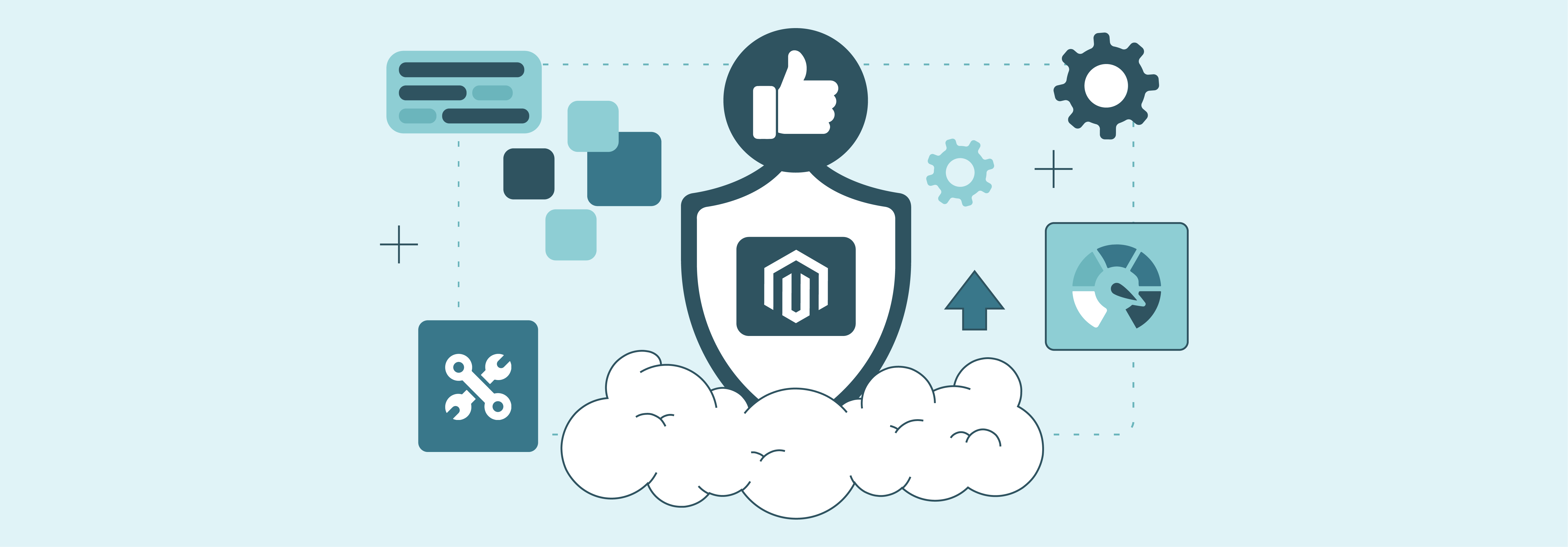
Understanding Magento Security Risks
Magento faces various security threats as a used eCommerce platform. These include malicious code injection and cross-site scripting. These threats can compromise the integrity of your store and jeopardize customer data.
Common Security Threats to Magento Stores
1. Malicious code injection
Attackers may inject malicious scripts into your store's codebase. This can exploit vulnerabilities. It allows them to gain unauthorized access.
2. Cross-site scripting (XSS) attacks
Hackers can exploit vulnerabilities in Magento's frontend code. They can execute malicious scripts in users' browsers.
3. SQL injection vulnerabilities
Attackers exploit insecure SQL queries. They manipulate your store's database. They retrieve sensitive information.
4. Brute force attacks on admin credentials
Hackers try to access the Magento admin panel. They guess usernames and passwords.
5. Vulnerabilities in third-party extensions
Malicious coded extensions can introduce security vulnerabilities into your store's environment.
Basic Magento Security Features
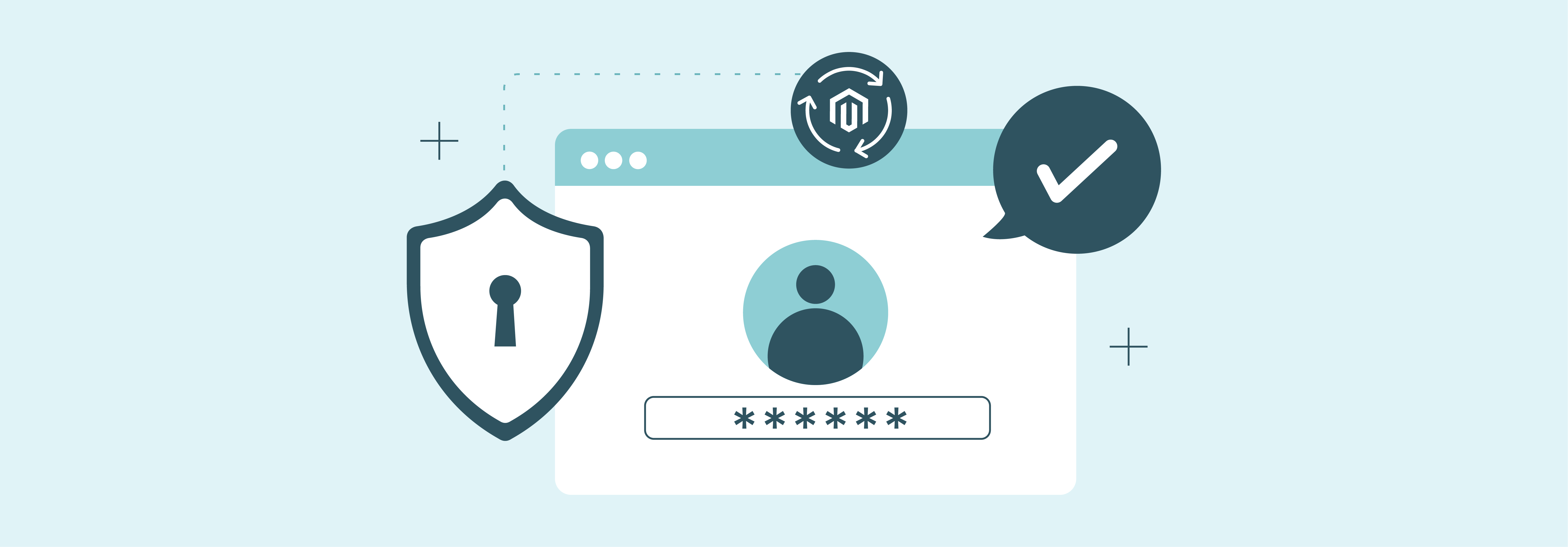
1. Built-in Magento Security Measures
-
Secure Password Hashing: Magento employs strong cryptographic algorithms. These algorithms hash user passwords. This safeguards them against unauthorized access. 2FA (two-factor authentication) can also be useful here. This adds extra security.
-
Role-based Access Control: Administrators can assign specific roles and permissions to users. This limits access to sensitive areas of the store. It reduces the risk of unauthorized actions.
-
Form Key Validation: Magento utilizes form keys. These prevent Cross-Site Request Forgery (CSRF) attacks. They ensure the authenticity of form submissions. This enhances security.
-
Admin Session Validation: Magento validates the authenticity of admin sessions. This mitigates the risk of session hijacking. It also prevents unauthorized access to the admin panel.
-
CAPTCHA for User Authentication: Magento CAPTCHA challenges are useful during user authentication processes. They verify human users. This thwarts automated login attempts by bots. It enhances security.
-
HTTPS Secure Connection: Enabling HTTPS for your store ensures secure communication. This communication is between the server and the client. It protects sensitive data such as login credentials and customer information.
-
Security Patches: Magento releases security patches. These address any known vulnerabilities in the platform. It is important to keep your store updated with these patches. This maintains a secure environment.
2. Regular Magento Updates and Patches
Regular updates and patches maintain the security and stability of your store:
-
Addressing Security Vulnerabilities: Magento releases updates and patches. These address known security vulnerabilities. Security assessments identify vulnerabilities. Community contributions also play a role.
-
Enhancing Security Posture: Regular updates bring enhancements. They also bring improvements to Magento's security posture. This helps safeguard against emerging threats and vulnerabilities.
-
Ensuring Compatibility: Updates and patches ensure compatibility. They work with the latest web technologies, browsers, and security standards. This reduces the risk of compatibility issues. It ensures optimal performance.
-
Staying Ahead of Threats: Staying up-to-date with Magento updates is crucial. Merchants can mitigate the risk of security breaches. They protect their store and customers' data from malicious actors.
-
Compliance Requirements: Regular updates are essential for compliance. They help merchants stay in line with industry regulations and standards. This includes PCI DSS, GDPR, and others. These standards mandate implementing security best practices and timely patching of vulnerabilities.
Best Practices to Choose a Secure Magento Hosting
| Criteria | Description |
|---|---|
| Experience with Magento | Choose a provider with a strong background in hosting Magento platforms, indicating they understand Magento's specific requirements. |
| Security Track Record | Look for a host with a proven security and reliability track record. Providers should have measures to prevent, detect, and respond to security threats. |
| 24/7 Security Support | Ensure the hosting provider offers around-the-clock support for security issues. Immediate assistance is crucial in the event of a security breach. |
| Firewall and Intrusion Prevention | The host should have comprehensive firewalls and intrusion prevention systems to protect against unauthorized access and cyber threats. |
| Regular Backups and Disaster Recovery | Choose a provider that performs regular backups and has a solid disaster recovery plan to ensure data integrity and availability in case of a breach or failure. |
| Real-time Monitoring and DDoS Protection | Real-time monitoring helps identify potential security threats quickly, while DDoS protection ensures your site remains accessible even under attack. |
| SSL Certificate Support | The provider should offer easy integration and support for SSL certificates, ensuring secure data transmission between the server and your user's browsers. |
| Compliance with Standards | Verifies that the hosting provider complies with industry standards and regulations, such as PCI DSS, to meet legal and operational security requirements. |
| Scalability | Your hosting provider should offer scalable solutions that can grow with your Magento store, ensuring that security and performance can be maintained as traffic increases. |
| Performance Optimization | Look for hosts that offer performance optimization specifically for Magento, as this can directly impact site security and user experience. |
FAQs
1. When choosing Magento hosting providers in 2024, what factors are important?
Consider their expertise with Magento and security records. Look at the hosting types they offer, such as shared, VPS, or dedicated. MGT-Commerce, Nexcess, etc, are notable for their Magento support and capabilities.
2. How does managed hosting differ from shared hosting for Magento sites?
Managed hosting offers extensive support, including security and performance optimization. Shared hosting involves hosting many websites on one server. It usually requires the site owner to manage their Magento installation.
3. Why is VPS hosting recommended for Magento websites?
VPS hosting provides dedicated resources at a lower cost than dedicated hosting. It suits Magento websites needing more resources than shared hosting offers.
4. What benefits does dedicated hosting provide for Magento applications?
Dedicated hosting offers the most resources and security. It dedicates an entire server to your site. This is ideal for high-traffic Magento sites needing greatest performance and control.
5. What is Magento managed hosting, and what are its benefits?
Managed Magento hosting includes management of updates, security, and performance. It's beneficial for businesses to focus on core operations. While experts handle the technical side of their Magento site.
6. How does a managed Magento cloud hosting server benefit my online store?
Managed Magento cloud hosting provides scalable resources and high availability. It ensures your store handles traffic spikes. This delivers a seamless shopping experience without compromising performance or security.
Summary
With the right website hosting Magento, you fortify your site against cyber threats. Key features:
-
Security: Magento hosting protects against cyber threats like malware and hacking attempts.
-
Data backup: Regular backups ensure your data is safe and recoverable.
-
Scalability: Handles increased traffic without performance loss.
-
Performance: Optimized for fast loading times and smooth browsing.
-
Customization: Tailor your site design and functionality to your needs.
Check out managed Magento hosting solutions for a secure online store.



